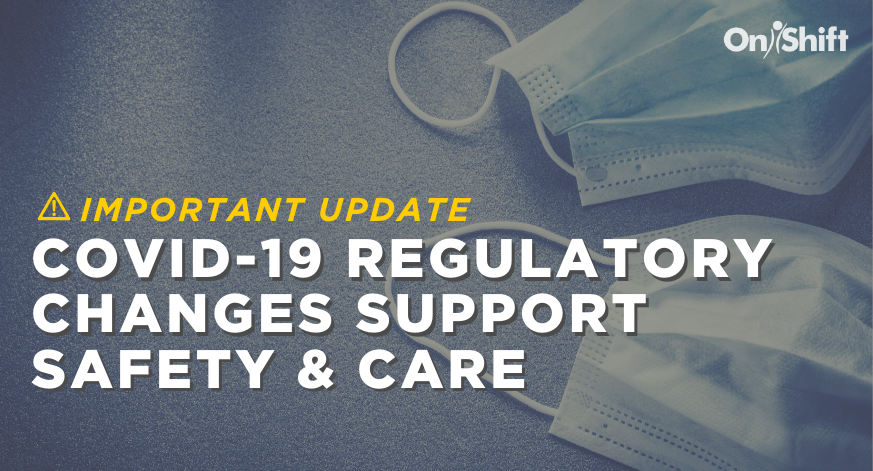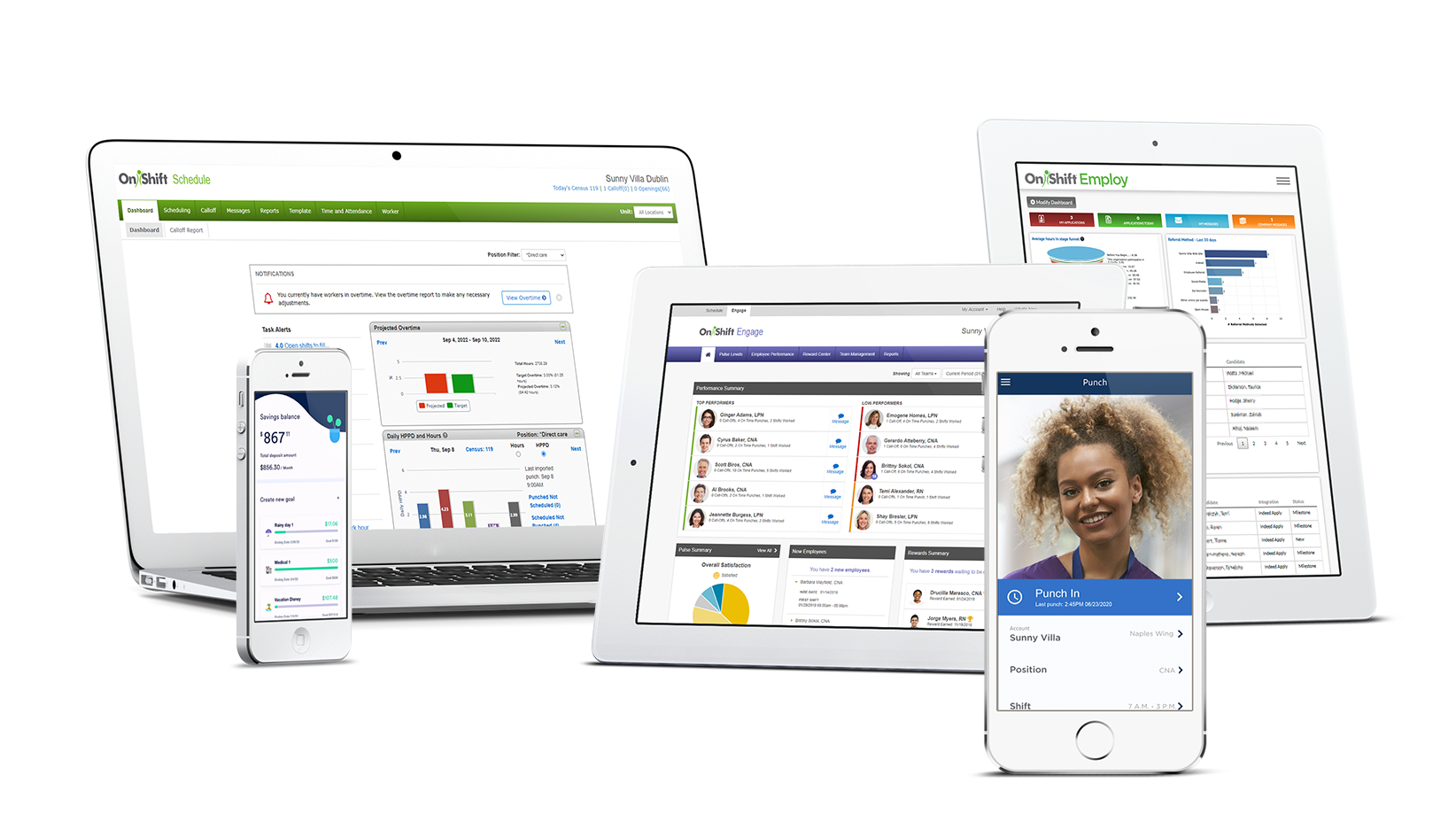April 13, 2020 | Peter Corless
April 13, 2020 | Peter Corless
 The Centers for Medicare & Medicaid Services (CMS) recently released a number of regulatory changes and guidance to help senior care organizations better respond to the unprecedented COVID-19 pandemic. These changes are intended to free up more time for providers to give their undivided attention to stopping the spread of the virus and caring for those who become infected. I’ve been keeping close tabs on these updates and wanted to outline a few of these important temporary waivers and guidelines.
The Centers for Medicare & Medicaid Services (CMS) recently released a number of regulatory changes and guidance to help senior care organizations better respond to the unprecedented COVID-19 pandemic. These changes are intended to free up more time for providers to give their undivided attention to stopping the spread of the virus and caring for those who become infected. I’ve been keeping close tabs on these updates and wanted to outline a few of these important temporary waivers and guidelines.
Payroll-Based Journal Reporting
On March 28, CMS released a memo that included a waiver related to Payroll-Based Journal (PBJ) reporting, the skilled nursing industry’s method for collecting and sharing staffing data. The announcement noted CMS will be temporarily waiving the required submission of staffing data through the PBJ system to provide relief to long-term care facilities during this challenging time. Providers who still want to submit their data may do so, especially if it may result in an improved staffing star rating. You can read the full memo here.
Nurse Aide Training & Certification Requirements
To help skilled nursing facilities retain or increase their pool of caregivers during this health emergency, CMS is also waiving the rule which requires that facilities may not employ anyone for longer than four months unless they met the training and certification requirements. CMS urges providers to keep in mind that they are not waiving the portion of the rule that “requires facilities to ensure that nurse aides are able to demonstrate competency in skills and techniques necessary to care for residents’ needs, as identified through resident assessments, and described in the plan of care,” the memo reads.
A recent McKnight’s Long-Term Care survey revealed that 48% of respondents had workers calling out sick with COVID-19 symptoms. This waiver addresses this concern and was put in place to help support critical workforce needs.
“Allowing [nurse aides] to work for over four months with [only] competency assessments, help[s] providers focus on caregiving rather than paperwork, and provides much-needed support for a workforce under tremendous strain due to this crisis,” Janine Finck-Boyle, vice president of regulatory affairs for LeadingAge, told McKnight’s.
AHCA has created an 8-hour online training program to be used in conjunction with on-site training received in the facility to prepare temporary nurse aides for the current state of emergency. More information about the course can be found here.
Additional Protective Measures
CMS has enacted several other measures to protect staff and residents during the pandemic, including requiring the screening of every person entering long-term care facilities. Residents, staff, visitors, outside healthcare workers and vendors all must be asked questions related to symptoms of COVID-19 and have their temperature checked before being admitted. Points of entry into each facility should be limited and closely monitored as well.
CMS has also encouraged facilities to develop dedicated COVID-19 wings with their own designated teams of staff. “This practice can enhance staff’s familiarity with their assigned patients and residents, helping them detect emerging condition changes that unfamiliar staff may not notice,” CMS explained.
Additionally, all staff members must use the appropriate PPE when interacting with patients and residents under CDC guidance. As long as the state of emergency continues in their respective state, all employees must wear face masks at all times when in the facility. Full PPE gear should be worn while caring for residents with known or suspected cases of the virus. Since staff can transmit the virus while being asymptomatic, it’s vitally important that these guidelines be adhered to.
I’ll continue to keep keep you updated on workforce-related changes as you navigate this challenging time.
Subscribe to the OnShift Blog
Recent Posts
Categories
About Peter Corless
Peter Corless is Executive Vice President of Enterprise Development for OnShift. Peter is a recognized HR leader in post-acute care and is well-known for his achievements at some of the country’s largest post-acute care organizations, including Kindred Healthcare and Genesis HealthCare. As an experienced, chief administrative and human resources officer within these organizations, he developed strategies that reduced turnover, improved recruiting and hiring strategies, and reduced labor costs.
See for yourself why thousands of providers rely on OnShift’s innovative software for recruitment, hiring, workforce management, pay and engagement. Request your personalized demo today.
